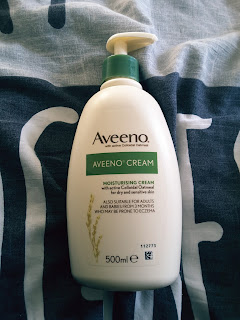Guest Post - Diet and Psoriasis
This post is by a fellow Psoriasis Sufferer from somewhere around the Globe.
He has written a little something specially to share information about how a diet can effect Psoriasis. Enjoy!
Check out his wonderfully informative blog at: http://byebyepsoriasis.com/ for more posts. :)
How
Diet Affects Psoriasis – Reduce Psoriasis Symptoms Through Food
Many people think that there is little to
no correlation between food and psoriasis. That being said, new research has
emerged that suggests that this is incorrect. So many people are starting to
realize that psoriasis is intrinsically linked to the digestive system and is
commonly associated with specific food allergies.
One study in particular demonstrated that "Fasting
periods, low-energy diets and vegetarian diets improved psoriasis symptoms in
some studies, and diets rich in n-3 polyunsaturated fatty acids from fish oil
also showed beneficial effects."
While it isn't necessary to implement all
these strategies, it is important to note that they can make a difference in
your psoriasis symptoms and quality of life.
Let's take a closer glance at these dietary
adjustments as well as other related practices that are effective in healing P.
Vegetarian
Diet
There is some speculation about one of the
potential causes of psoriasis being what is known as “Leaky Gut Syndrome”,
where the small intestine (which is the immune system's first line of defense)
is aggravated by large food particles and yeasts travelling through the
digestive tract. This causes all kinds of problems such as damage to the
intestinal wall, allowing foreign bodies to permeate it. This may explain why
many psoriasis sufferers are also plagued by IBS symptoms and other digestive
issues.
While this theory lacks adequate empirical
evidence, it may still serve as an illustration of how psoriasis is affected by
certain foods and how allergies to new foods can develop out of it.
A vegetarian diet is helpful because
it ends up eliminating both red and white meats which are very difficult to
digest and are notorious causes of inflammation. Without these foods in your
diet, your digestive system will be given a much needed rest from breaking down
tough foods and therefore be allowed to recuperate.
Another beneficial aspect of the vegetarian
diet is that it prevents you from eating out often; since meat is a staple at
take out joints and restaurants, being a strict vegetarian will force you to
find alternative (and healthier) meal options.
Still, there are vegetarian foods that are
widely recognized as being psoriasis triggers. Further modifications are needed
to eliminate those problem foods.
The
Modified Anti-Inflammatory Diet
This avenue is an optimal one for anyone
who suffers from a skin condition. While it is technically pescetarian (which
breaks the veggie rule), it eliminates several other problem foods that seem to
be common allergens. This is a far cry from the commonly embraced
anti-inflammatory diet which allows foods contain lactose or gluten. I suggest
eliminating both lactose and gluten for at least 4-6 weeks to see if psoriasis
symptoms abate. Some psoriasis sufferers find that getting rid of just those
two ingredients alone seems enough to start the skin to clear quite noticeably.
Here is the bare bones diet: all of the
foods are the simple, wholesome and natural: rice, fish, loads of fresh
fruits and veggies, lots of seeds, nuts, olive oil (or hemp oil).
Foods that are off limits: Meat, Bread,
Dairy, Tomatoes, Potatoes, Refined Sugar, anything that could cause
inflammation.
I starting adhering to this diet
exclusively about a year ago. While it may be seem impossible at first to pass up on so many tasty and
prevalent foods, it is totally worth it, if you want to start seeing a serious
difference in your skin and you health overall.
Intermittent
Fasting
This is another powerful tool when it comes
to treating P. It has seen a lot of popularity recently, in popular media and
on the web. Some styles of intermittent fasting involve switching on-off
between days of normal eating followed by a full day of fasting. In other
kinds, instead of abstaining entirely, you switch to one meal a day and skip
the others. Another variation called the 5:2 diet suggests that you stick to an
average diet 5 days out of the week and select the remaining 2 days to perform
two eighteen hour fasts respectively.
Whatever method you end up trying (if you
try it at all), keep in mind that balance is essential. Eating too little can
result in more harm than good.
For more info on the subject, watch this fascinating documentary.
I also suggest that you consult a doctor or
healthcare expert before starting any new diet or dietary restriction method.
In
Closing
These guidelines are meant to help you
achieve your goals in psoriasis reduction. They are anything but consistent. If
changing your food intake hasn't worked for you, don't feel discouraged.
Psoriasis is hard to manage and doesn't always react to positive lifestyle
changes immediately. Don't give up hope.
It's also vital that you be comfortable
with yourself, just as you are, in the present moment. Don't wait for your
psoriasis to begin going away before you take the time to love yourself and
others.
I wish everyone peace and clear skin.
Matthew Bridge is a musician, professional
blogger, psychology major and fellow psoriasis sufferer. He operates www.byebyepsoriasis.com as a comprehensive source for natural and effective
psoriasis treatments and remedies, as well as coping methods and psychological
strategies for dealing with the disease.



